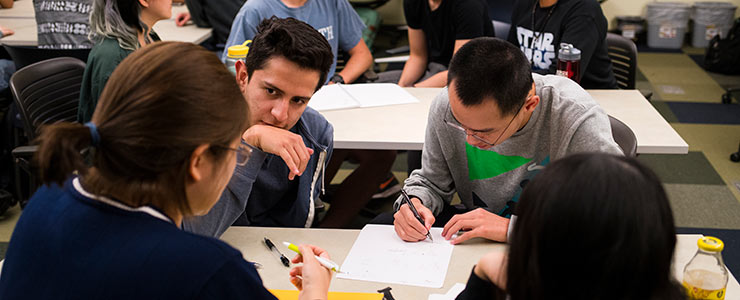Learn
The First Amendment to the U.S. Constitution is only 45 words long, yet it protects our most basic freedoms. It reads in full:
“Congress shall make no law respecting an establishment of religion, or prohibiting the free exercise thereof; or abridging the freedom of speech, or of the press; or the right of the people peaceably to assemble, and to petition the Government for a redress of grievances.”
“But, above all else, the First Amendment means that government has no power to restrict expression because of its message, its ideas, its subject matter, or its content.”
—Supreme Court Justice Thurgood Marshall, Police Department of Chicago v. Mosley (1972)
UC Santa Cruz Free Speech Statement
Freedom of thought, inquiry, speech and lawful assembly are fundamental rights of all persons. These rights include the freedom to express opinions; to hear, express and debate various views, no matter how unpopular; and to voice criticism. Free speech is uniquely important to the University as it brings about a free interchange of ideas integral to the University’s fundamental mission of teaching, research and public service.
Protests and civil disobedience have played an historic role on the University campuses, in bringing important and beneficial changes within society, and in the development of our democracy. However, civil disobedience is not protected speech under the Constitution.The Constitution does not guarantee any right to engage in civil disobedience – which, by its very definition, involves the violation of laws or regulations – without incurring consequences. Civil disobedience may have a negative effect on the protected interests of others and may interfere with University business or threaten public safety or University assets, in ways that may require the University to act to protect those other interests.
For more information on expressing your message, please write to deanofstudents@ucsc.edu
Forums
What is forum analysis and how does it work?
- Forums are different physical spaces that are associated with different levels of freedom/regulation
- A general rule of thumb is that the more public and open a space is (for example, the Quarry Plaza at UCSC or the comments section of UCSC’s main social media account), the more expression is allowed and the fewer regulations are permitted. In more private spaces, less expression is allowed and more regulations are permitted.
What are the four types of forums?
- Traditional Public Forums: Spaces such as sidewalks and areas that have traditionally been open to political speech and debate. In those areas, speakers enjoy the strongest First Amendment protections.
- Designated Public Forums: Spaces where the government chooses to allow speech generally (the quads in each College for example).
- Limited Public Forums: Spaces where the government allows certain types of speech by certain groups (e.g. bulletin boards in the Colleges).
- Nonpublic Forums: Spaces not made available for public expression (e.g. faculty offices).
Forum Analysis: Standards for Regulating Speech
- In a non-public forum, the government:
- Can claim that there are no general free speech rights because the space is designated for other kinds of activities. For example, administrative offices are not places where people can generally access for the purpose of allowing them to express viewpoints on a range of subjects.
- In a limited public forum, the government may impose restrictions that are:
- Viewpoint neutral
- And reasonable in light of the purpose of the forum
- In public and designated public forums the government may impose restrictions that are:
- Content-neutral (subject matter and viewpoint)
- Narrowly tailored
- Ample alternative channels of communication
- Serve a significant interest

